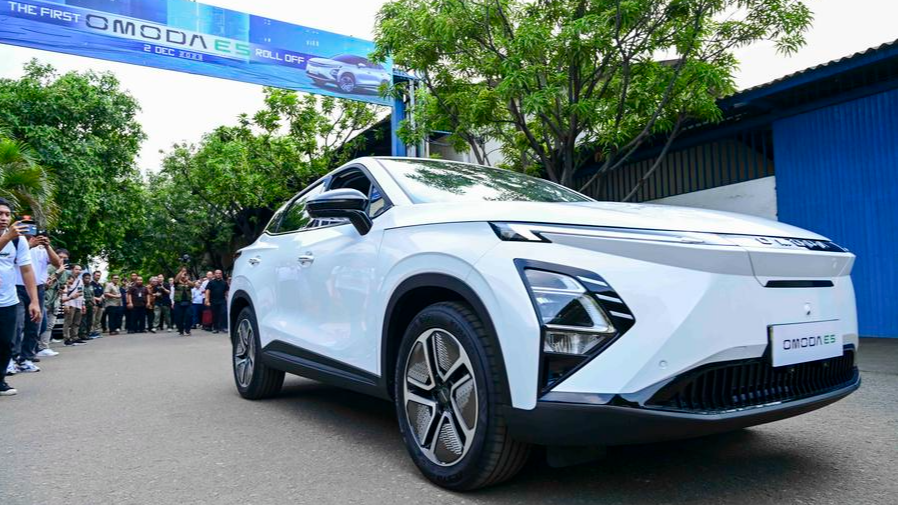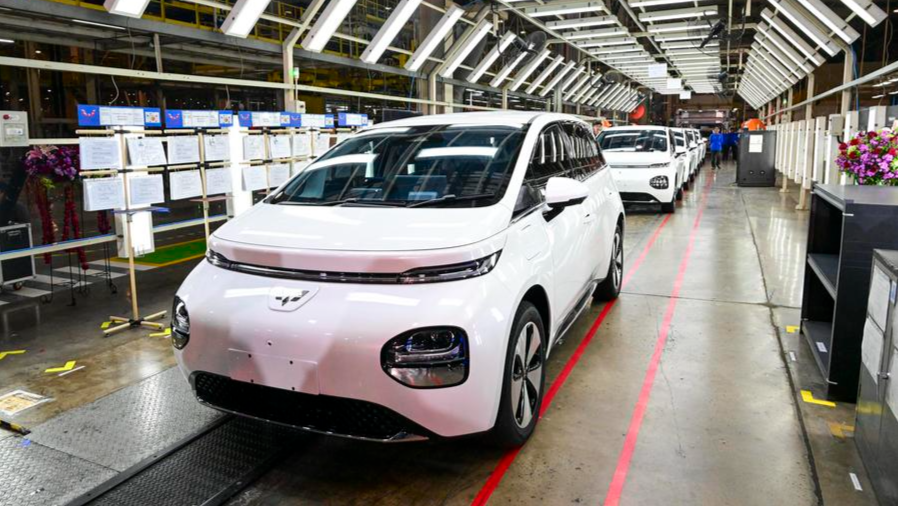
Indonesia is seeing a staggering rise in the use of electric vehicles (EVs) amid the annual mass transit of people intending to celebrate Eid al-Fitr in their hometowns. The rise is driven by the wider availability of battery charging stations and other support measures.
Eid al-Fitr is held to celebrate the end of the Muslim holy month of Ramadan which falls on March 31 this year.
Traffic of the annual movement of people, known locally as Mudik, is expected to peak on March 28-30, the first days of the holidays that will last until April 7.
READ MORE: Indonesia, Chinese firms combine to drive EV growth
However, a survey jointly conducted by Indonesia’s Ministry of Transportation and a group of academics projected the number of this year’s Eid homecoming travelers will drop by 24 percent from 193 million people last year.
Weakening buying power due to significant price rises for essential goods in recent months is the main factor behind the drop in the number of Eid travelers, government officials and analysts said.
According to state power company PT PLN, EV usage during this Eid season is estimated to rise by 500 percent to 75,000 EV units from last year.
These include Wuling and BYD, two Chinese brands that have now grabbed top positions for sales in Indonesia.
By March 13, some 35,000 EVs transporting Eid travelers had already been seen on toll and non-toll roads in Java and Sumatra, said Tulus Abadi, chairman of Indonesian Consumers Foundation and a member of the Toll Road Regulating Body, the Kompas newspaper website reported.
Java is the most developed area in Indonesia and is home to almost 60 percent of the country’s population, while Sumatra is the largest island fully within Indonesia and the most developed island outside Java.
To address the staggering increase in EV usage this Eid, the government has set up many more battery charging stations along major homecoming routes in Java and in other islands across the vast archipelago.
This move reflects the country’s ambition of making itself an important EV hub, given its abundant reserves of nickel, which is a core component in the cathodes of many lithium-ion batteries.
PT PLN President Director Darmawan Prasodjo said the company has readied a total of 1,000 EV battery charging stations this Eid, seven times more than last year.
The wider availability of battery charging stations has helped push up EV usage for this year’s Eid migration, industry players said.
Jajan Gumelar, who works at a firm in Jakarta, owns a Wuling Air EV and a non-EV car from Japan.
He said he now feels better after witnessing the rising number of electric car battery charging stations and homes now provided with EV chargers.
In addition to the overall proven performance of EVs and the wider availability of charging stations, the relatively more affordable price of a four-seat Wuling Air EV encouraged him to buy the car.

Another factor that has encouraged more people like Gumelar to buy Wuling and other EV car brands is the Jakarta City government’s policy package.
Measures allow EVs to pass through certain roads in the capital any time, exempting them from its odd-even license plate rule, in a move aimed to reduce traffic jams and minimize air pollution.
Gumelar said he had traveled widely in West Java with his Wuling car and had never experienced any serious mechanical and battery problems.
Soon after buying his Wuling two years ago, the car’s battery unexpectedly died near Bandung in West Java due to miscalculation of the battery power.
“But now I no longer worry as I already have better knowledge about the (maximum possible) distance and the battery charging stations,” Gumelar said.
Rubby Lie, branch head of Prima Wahana Auto Mobil, Wuling’s largest dealership in Indonesia, said the Wuling Air EV had actually been designed for city usage, unlike Wuling Binguo designed to also serve distant inter-city routes.
Lie is optimistic that EVs will become increasingly popular in Indonesia because people in the country like goods that are economical.
“The infrastructure and the ecosystem support the presence of electrical vehicles, and electric vehicles are becoming a future trend (in Indonesia)” Lie said.
Nita Gloria, a manager at PT Arista Elektrika Indonesia, which sells BYD cars, praised the government’s all-out support for the EV industry in Indonesia, including building battery industry infrastructure and providing direct subsidies to EV buyers and tax incentives for EV owners.
Overall, such measures are aimed at making EVs more affordable for as many Indonesians as possible and for exports, Gloria told this correspondent.
READ MORE: EV giant BYD to launch cars in Indonesia on next week
Gloria added that the completion of construction and beginning of operations next year of a 108-hectare BYD plant in Subang, West Java, would make the car brand even more popular in Indonesia.
Besides Wuling, several other Chinese EV brands have been produced in the country, including Chery, Neta, DFSK, and Seres.
Indonesia has set a target of producing 600,000 EV cars in 2030, both for the local market and export.
The writer is a freelance journalist for China Daily.


